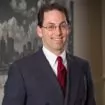On May 4th Mayor Bill de Blasio signed a new bill into law that, when it goes into effect on October 31, 2017, will bar New York City employers from inquiring about job applicants' salary histories. While the law's primary effect is being widely discussed, some of its deeper implications may be overlooked. The law amends the Unlawful Discriminatory Practices section of New York City's Administrative Code to make salary history inquiries an unlawful discriminatory practice. According to Mayor de Blasio, the new law's objective is to close the gender pay gap.
The law expands on a previous Executive Order Mayor de Blasio signed in November 2016 that banned New York City agencies from inquiring about salary histories of job applicants. The present law broadens the prohibition to apply to both private and public employers. The law applies to all New York City employers with at least 4 employees and, as discussed below, can even apply outside of New York City's geographic limits.
New York is not the first jurisdiction to prohibit inquiries about job applicants' salary histories. Massachusetts, Philadelphia and Puerto Rico have already passed similar laws. More than 20 states are also considering legislation. The Paycheck Fairness Act, if passed in its present form, would strengthen the push towards banning salary history questions at the federal level as well.
Arguably, and depending on their precise language, such laws may raise Constitutional concerns. In Philadelphia, for example, the Chamber of Commerce for Greater Philadelphia ("Chamber") filed a lawsuit in federal court alleging that the Philadelphia law functions as a content-based regulation on speech, and therefore violates the First Amendment of the United States Constitution. The court handed the Chamber an initial procedural setback, holding that the case had to be brought by a member of the Chamber sufficiently affected by the Philadelphia law. Accordingly, on June 13, 2017 Chamber filed an amended complaint adding as new plaintiffs a number of members who are businesses within the city, and claims they will be directly harmed by the law. Among other things, the businesses allege that the new law will hamper their ability to recruit and hire top talent. The amended complaint also includes a number of new allegations.
The amended complaint contends that the law only indirectly affects the gender wage gap and therefore is not tailored narrowly enough to serve the law's intended goal. The Chamber further argues that the law could achieve its goals through other means "more directly targeted at the problem of gender discrimination and that would have restricted far less employer speech." Additionally, the Chamber challenges the law on Due Process Grounds, contending that the language of the Ordinance stating what employers may and may not do regarding applicant's wage-history information is impermissibly vague. The Chamber finally alleges that the law is invalid because it will effectively apply to employers who work outside of Philadelphia, and even outside of Pennsylvania. According to the Chamber, the law subjects out of state employers to its provisions so long as the employer "does business in the City" or "employs one or more employees" in the City. To the extent that the law seeks to regulate conduct beyond the boundaries of the state, it violates the Commerce Clause of the United States Constitution. Additionally, by regulating activity "beyond the city limits" it also directly violates the Pennsylvania constitution.
It remains to be seen whether many of the provisions of the New York City law will be similarly challenged. Like the Philadelphia law, the New York City law arguably regulates speech. Like the Philadelphia law, the New York City law might be challenged as vague. Like the Philadelphia law, the New York City law may also affect employers at locations outside of the city's, and even the state's, geographic borders. In this regard, New York case law has already established some circumstances in which the antidiscrimination provisions of the Administrative Code can apply to employees who both reside and work outside the city. Regan v. Benchmark Co., No. 11 CIV. 4511 CM, 2012 WL 692056, at *14 (S.D.N.Y. March 1, 2012).
Finally, New York City employers should be aware of the potential penalties under the New York City law. The enforcing agency, the New York City Commission on Human Rights, is granted broad power, including the ability to fine employers with civil penalties of up to $125,000 for unintentional violations and up to $250,000 for willful violations. Individuals may also bring private lawsuits for alleged violations, in which they can recover back pay, compensatory damages and attorney's fees, if they prevail.
New York City's new law strongly incentivizes those companies who might be subject to it to reexamine their current hiring procedures. Those employers may want to consider, among other things, revisiting their employee handbooks, policies and procedures, their application and hiring practices, as well as appropriate training for those involved in the hiring process.
The content of this article is intended to provide a general guide to the subject matter. Specialist advice should be sought about your specific circumstances.

